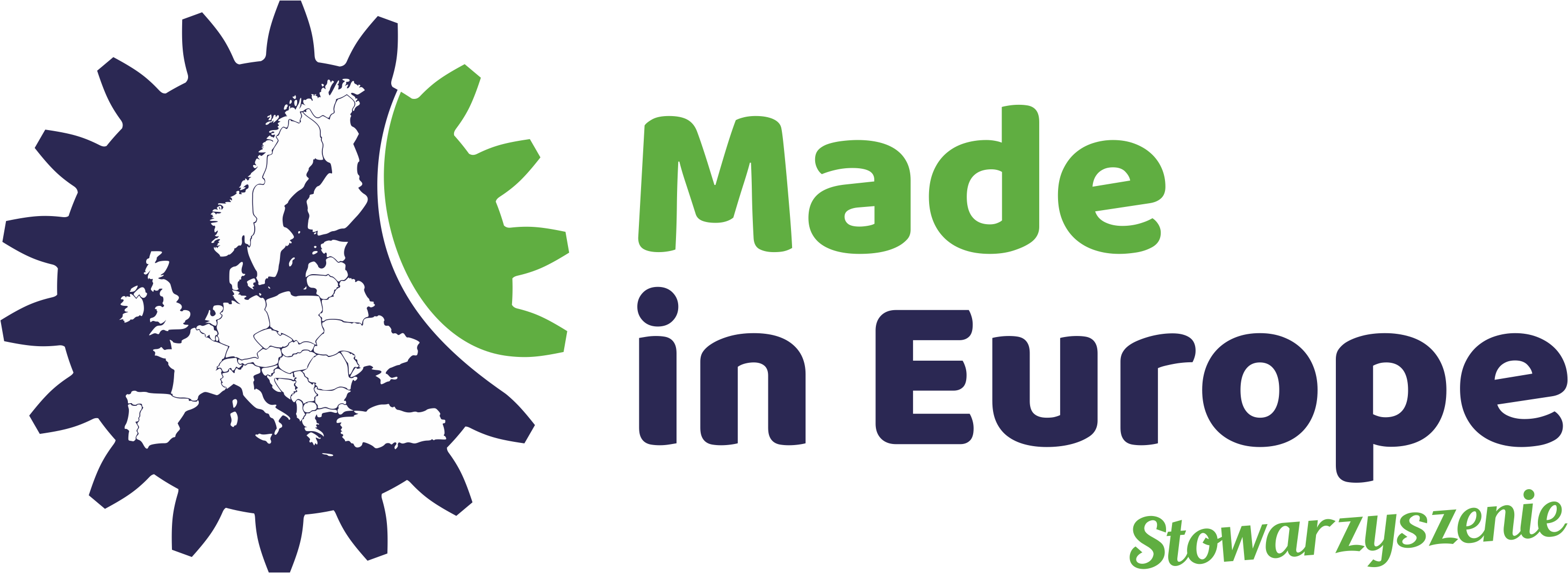Have you ever wondered who really owns your private conversations? For years, most of us in Europe have relied on American giants like WhatsApp and Facebook Messenger to keep in touch with friends, family, and colleagues. These platforms promise “free” services, but the real price is often our privacy—our messages, contacts, and even our metadata stored on servers far beyond European borders, governed by laws and policies as unpredictable as the current US administration. In an era of global uncertainty and digital sales wars, is it wise to keep entrusting our most personal data to companies whose allegiances and priorities may shift overnight?
At the Made in Europe Association, we believe it’s time for a change. Europe is home to a vibrant ecosystem of messaging apps that not only comply with our own stringent privacy laws but often surpass their American counterparts in transparency, security, and user empowerment. For too long, we’ve paid for “free” apps with our data. Now, let’s explore the European alternatives that put users—not advertisers or foreign interests—at the center.
Threema: Swiss Privacy, No Compromises
Threema, developed in Switzerland, is the gold standard for privacy-first messaging in Europe. What sets Threema apart is its “Privacy by Design” philosophy: the app generates as little metadata as technically possible, and messages are deleted from servers immediately after delivery. You can use Threema completely anonymously—no phone number or email required; instead, you get a randomly generated Threema ID. The service is fully open source, with code and security audits available for public scrutiny, and all servers are hosted in Switzerland, ensuring your data remains protected by some of the world’s strongest privacy laws. Threema’s end-to-end encryption covers all communications, including group chats, calls, and even profile pictures. The app is available across iOS, Android, Windows, macOS, and Linux, making it as versatile as it is secure. There is a one-time fee of 5 EUR, which supports the company’s independence from advertising and data sales. As an association, we recommend Threema most highly—not just for its technical excellence, but for its unwavering commitment to user rights, transparency, and European values. In a world where privacy is under siege, a small upfront cost is a wise investment in your long-term digital security.
Skred: French Peer-to-Peer Privacy
Skred, hailing from France, offers a unique peer-to-peer approach to private messaging. Unlike most apps, Skred doesn’t require a phone number or email for registration, instead using QR codes for contact exchange. This means your identity remains truly private, with only a minimal account token stored. All exchanges are end-to-end encrypted and the app does not store any messages or metadata on central servers, further reducing privacy risks. Skred’s encryption draws on the expertise of the Guardian Project, and the app undergoes regular security audits by Quarkslab. Features include self-destructing messages, secure file sharing, group chats, and the ability to create multiple identities for different contexts. Skred is free to use and available on iOS, Android, and desktop, making it accessible to a wide audience. Its only notable drawback is that it’s not yet fully open source, but its strong audit record and privacy-first design make it a top recommendation for those who value anonymity and security.
Element: Decentralized, Transparent, and Open
Element, formerly Riot.im, is a UK-born messaging platform built on the Matrix protocol, which champions decentralization and interoperability. Every line of Element’s code is open source and available on GitHub, allowing governments, organizations, and independent experts to audit its security. Element’s decentralized architecture means users or organizations can host their own servers, ensuring complete data ownership and sovereignty. End-to-end encryption is standard for one-on-one and group chats, and the app integrates with Jitsi for secure video conferencing. Element is available across desktop and mobile platforms, but its interface and decentralized nature may present a learning curve for some users. Despite that, its commitment to openness, robust encryption, and user control make it a standout choice for privacy-conscious individuals and organizations.
Wire: Swiss Security with a Modern Touch
Wire, another Swiss entry, is fully open source and has undergone several independent security audits to address early concerns. Communications—messages, files, and calls—are end-to-end encrypted by default, using the Proteus protocol, which is an early iteration of the widely respected Signal protocol. Each message is encrypted with new keys that rotate regularly, ensuring strong forward secrecy. Wire is available for free for personal use and offers paid plans for businesses. While it does collect some metadata (notably for syncing across devices), this is a trade-off for cross-platform convenience. The company’s servers are located in Germany and Ireland, with ISO 27001 certification and regular audits. Wire is a solid choice for users seeking a balance between usability and privacy, but those with the highest privacy demands should consider whether metadata collection aligns with their threat model.
Olvid: French Innovation with Certified Security
Olvid, from France, is a trailblazer in cryptographic innovation. Its client-side code is open source, and its cryptographic protocols have been independently validated by leading experts. Olvid does not require a phone number or email; instead, contact exchange happens via QR codes when users are nearby, and there is no central user directory—reducing the risk of unsolicited messages and large-scale attacks. Uniquely, Olvid encrypts not just message content but also metadata, guaranteeing the anonymity of correspondents. The app has received Security Visas (CSPN certification) from the French cybersecurity agency ANSSI, a rare mark of trust. While video calling requires a paid subscription, Olvid’s uncompromising privacy and formal certifications make it ideal for those who demand the highest standards.
Delta Chat: Messaging Meets Email
Delta Chat, developed in Germany, takes a novel approach by using your existing email account as the backbone for messaging. There’s no need to register or create a new account—just use your current email. After the initial message, all communications are automatically end-to-end encrypted using the Autocrypt standard. Delta Chat is fully open source, decentralized, and works across multiple devices and platforms. Its reliance on the global email infrastructure means you can message anyone with an email address, even if they don’t use Delta Chat. While the experience can vary depending on your email provider and setup, Delta Chat’s flexibility and independence from proprietary servers make it a compelling option for those who value openness and interoperability.
Treebal: Messaging with a Green Heart
Treebal, from France, is the first ethical and eco-responsible messaging app, blending privacy with environmental stewardship. All communications are end-to-end encrypted, and messages are automatically deleted after seven days to minimize data storage and carbon footprint. Treebal is committed to eco-design, measuring and minimizing its environmental impact, and redistributes up to half of its revenue to environmental projects. The app is not fully open source and relies on Google Cloud servers in Brussels, which is a significant privacy drawback. However, Treebal’s mission-driven approach and collaboration with cybersecurity agencies for certification make it a unique option for users who prioritize both privacy and sustainability.
Ginlo / Ginlo2: Good Intentions, Questionable Execution
Ginlo, from Germany, claims strong encryption and privacy, but its partially open-source code lacks documentation and independent audits. The app uses AES-256-CBC and RSA-2048 encryption, but security researchers have identified several protocol weaknesses, such as outdated encryption methods and insecure key generation. Without comprehensive third-party validation, we cannot recommend Ginlo for users who prioritize robust, transparent security.
Session: Open Source, But with Caveats
Session, now based in Switzerland (formerly Australia), is a fully open-source messenger that operates without phone numbers or emails, using randomly generated Session IDs. It leverages a decentralized network of thousands of community-operated nodes, making it resistant to censorship and surveillance. Messages are end-to-end encrypted and routed through an onion network, masking sender and receiver IP addresses. However, Session’s decision to disable Perfect Forward Secrecy—a feature that ensures past messages remain secure even if keys are compromised—has drawn criticism.While its cryptography has been independently audited, and metadata collection is minimized, some concerns remain about its technical choices and association with cryptocurrency incentives. Session is innovative, but we refrain from a firm recommendation at this time.
TeleGuard: Promising, But Needs More Transparency
TeleGuard, another Swiss contender, claims strong encryption using the Salsa20 algorithm and a minimalist approach to data collection. However, the lack of a publicly available code repository or independent audits makes it difficult to fully assess its security. While the app appears safe and is funded by donations, we recommend waiting for greater transparency before trusting it with sensitive communications.
Briar: For Activists and High-Risk Users
Briar, developed in Austria, is designed for activists, journalists, and anyone needing extreme privacy. It uses a peer-to-peer protocol that syncs messages over Tor, Bluetooth, Wi-Fi, or even memory cards, allowing for secure communication even when the internet is down or unreliable. Briar does not rely on any central server, making it highly resistant to censorship and surveillance. All messages are stored securely on your device, and the app is fully open source. While not intended for everyday use, Briar is invaluable for those operating in high-risk environments or under oppressive regimes.
Teamwire: Enterprise-Grade Security for Business
Teamwire, from Germany, is tailored for businesses and organizations that require strict compliance with EU data protection laws. It employs advanced encryption for messages and metadata, holds ISO 27001 certification, and stores all data in certified German data centers. Teamwire integrates with leading enterprise mobility management solutions and offers features like audit-proof archiving and professional audit logs. While not fully open source, its focus on compliance and security makes it a strong choice for regulated industries, though it’s not intended for individual users.
Honorary Mention: Signal
Although not a European application, Signal deserves special recognition as it sets the global standard for secure communication. Launched in July 2014 by Moxie Marlinspike, Signal is developed by the non-profit Signal Foundation and its subsidiary, Signal Messenger LLC. The foundation was established in 2018 with $50 million in initial funding from WhatsApp co-founder Brian Acton, who now serves as Signal’s CEO. Despite being based in the United States, Signal’s source code is fully open, and the app has been approved for internal use by EU institutions, prompting us to include it in this overview.
At the heart of the application lies the Signal Protocol – an acclaimed cryptographic standard providing end-to-end encryption (E2EE) for text messages, voice messages, and video calls so robust that it’s used by WhatsApp, Facebook Messenger, and Google’s messaging products. The app was designed with global privacy standards in mind; its minimal data retention makes it highly resilient to law enforcement requests and government surveillance. The source code for the mobile clients, desktop application, and most server components is available on GitHub under the AGPL-3.0 license. This transparency allows independent experts to review, audit, and contribute to the codebase. The Signal Protocol has undergone numerous independent security audits, including a formal review by researchers from the University of Oxford and other institutions, which confirmed its resilience against attacks and the absence of major flaws. The Electronic Frontier Foundation (EFF) also rates Signal highly for security and privacy.
In summary, Signal stands out as a transparent, independently audited, and highly secure communication platform that has set industry standards. Although not a European solution, its reputation and security level are undeniable. Nevertheless, as the Made in Europe Association, we wish to emphasize that equally secure European alternatives exist, such as Threema, Skred, or Element, and it is their use that we primarily recommend to users both within and outside Europe.
Conclusion: Choose European, choose privacy
The dominance of US-based messaging apps is neither inevitable nor irreversible. Europe boasts a wealth of alternatives that respect our laws, values, and right to privacy. Whether you prioritize transparency, open source, independence, or even environmental sustainability, there’s a European messaging app tailored to your needs.
So, what’s stopping you from making the switch? Download one of these apps, invite your friends and family, and help us reclaim our digital sovereignty. Your conversations—and your data—deserve to stay in Europe.
Let’s start the conversation. Which European messaging app will you try first? Share your thoughts with us and join the movement for a more private, secure, and independent digital future.








